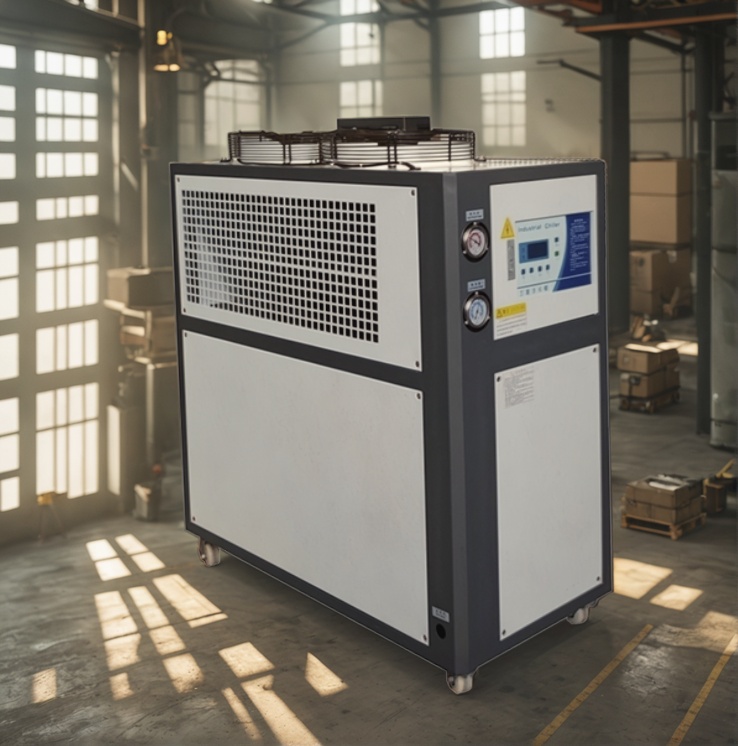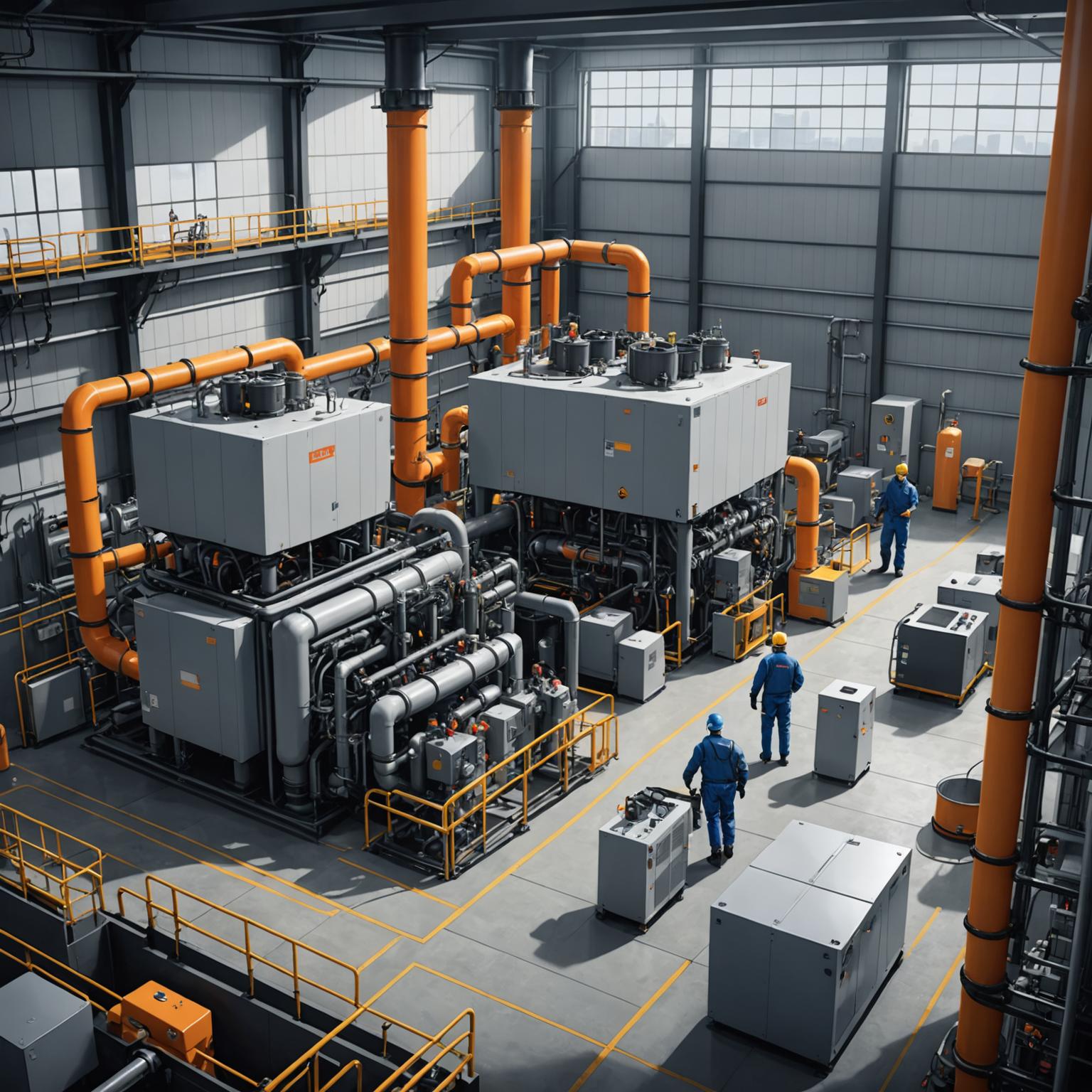Understanding the Core of Modern Production: The Industrial Chiller
In today’s highly competitive industrial landscape, efficiency, precision, and reliability are the pillars of success. Central to achieving these goals across numerous sectors is the effective management of heat. An Industrial Chiller is a critical piece of equipment designed to provide consistent and controlled cooling, ensuring that processes run smoothly, equipment is protected, and product quality is maintained. This technology has become indispensable for operations ranging from large-scale manufacturing to sensitive laboratory work, acting as the silent workhorse that powers modern industry by removing excess heat and maintaining optimal operating temperatures.

What is an Industrial Chiller and Why is it Essential?
At its core, an industrial chiller is a refrigeration system that cools a process fluid, typically water or a water/glycol mixture, which is then circulated through process equipment to absorb heat. This process is most commonly achieved through a vapor-compression or absorption refrigeration cycle. Heat is extracted from the process fluid, transferred to the chiller’s refrigerant, and then dissipated into the surrounding environment. The importance of this function cannot be overstated. Without precise temperature control, manufacturing equipment can overheat, leading to costly downtime, premature wear, and even catastrophic failure. In industries like food and beverage or pharmaceuticals, temperature fluctuations can compromise product integrity, leading to spoilage and waste. Therefore, an Industrial Chiller is not merely an accessory; it is a foundational component for ensuring operational continuity, quality control, and safety.
The Advantages of a Water Cooled Chiller
A prominent and highly efficient option within the chiller market is the water cooled chiller. Unlike air-cooled models that use ambient air to dissipate heat, a water cooled chiller transfers heat from the refrigerant to a separate water source, which is then typically pumped to a cooling tower for final heat rejection. This design offers several distinct advantages. Firstly, these systems boast a higher coefficient of performance (COP), meaning they are significantly more energy-efficient, especially in larger capacity applications. This translates directly into lower long-term operating costs. Secondly, because the heat rejection process is contained and managed through a cooling tower, these chillers are not as affected by fluctuating ambient air temperatures, providing more stable and reliable performance year-round. They also tend to have a longer operational lifespan due to their enclosed design, which protects critical components from harsh environmental elements. Finally, they operate much more quietly than their air-cooled counterparts, making them an ideal choice for indoor installations or in facilities where noise reduction is a priority.
Key Features to Consider When Browsing Industrial Chillers for Sale
When you begin exploring industrial chillers for sale, it’s crucial to look beyond the basic cooling capacity and consider the features that enhance performance, usability, and longevity. A modern, high-performance unit should incorporate several key elements. A robust cooling system is paramount, powered by a reliable refrigeration engine that guarantees consistent temperature control for even the most demanding machinery. Another vital feature is an intuitive digital control panel. A user-friendly interface that provides clear readouts of temperature settings, coolant levels, and overall system status empowers operators to make precise on-the-fly adjustments, maximizing efficiency. For deeper diagnostics, look for units equipped with dual pressure gauges for real-time monitoring of the refrigerant system, offering valuable insights that can prevent downtime. Effective heat dissipation, managed by a heavy-duty ventilation design and high-performance fans, is essential for sustained cooling capability under intense workloads. Furthermore, consider the physical design; a compact form factor combined with smooth-rolling caster wheels offers mobility and flexible placement within a crowded industrial space. Durability is non-negotiable, so a sturdy steel frame that can withstand tough environments is a must. Finally, always prioritize energy efficiency. Look for chillers with intelligent cooling systems designed to minimize energy consumption while delivering maximum cooling power, a critical factor for any cost-conscious operation.
Diverse Applications of Industrial Cooling Technology
The versatility of a robust cooling system is demonstrated by its wide range of applications across various industries. In the plastics industry, chillers are used to cool the hot plastic in injection and blow molding, which is essential for reducing cycle times and improving the quality of the finished product. The metal finishing sector relies on chillers to regulate temperatures during processes like anodizing and plating, ensuring a consistent and durable finish. In the food and beverage industry, chillers are used to cool everything from ingredients during mixing to finished products before packaging, adhering to strict food safety standards. The medical field depends heavily on this technology to cool high-tech equipment like MRI machines and PET scanners, which generate significant heat and require stable temperatures for accurate imaging. Similarly, laser cutting and welding processes require precise cooling to protect sensitive laser components and ensure the quality of the cut. In each of these applications, the chiller plays a pivotal role in enabling precision, speed, and quality.
Making the Right Investment in Cooling
Investing in the right cooling solution is a strategic decision that directly impacts operational efficiency, production quality, and profitability. Whether your needs are best met by a versatile and efficient water cooled chiller or another type of system, the key is to select a unit that offers a blend of powerful performance, intuitive control, durable construction, and energy efficiency. By carefully evaluating the features and understanding the demands of your specific application, you can find the perfect cooling partner. A high-quality chiller is more than just equipment; it is an investment in reliability and performance that will pay dividends for years to come.

